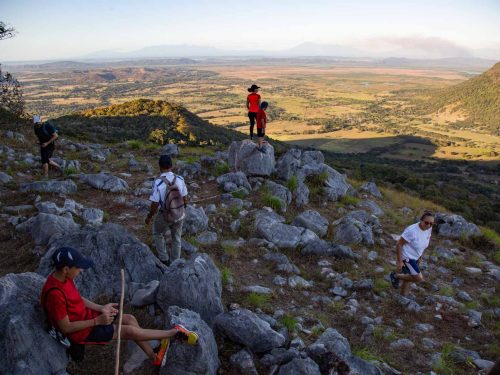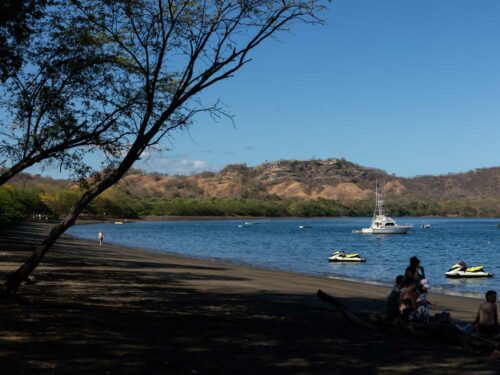
In July of 2015, Moises Noguera, a resident of Nicoya, thought he could take advantage of the vacation cabin that he had in Dulce Nombre— 20 minutes from Samara— since hardly anyone in his family visited it. At that time, he stumbled across the AirBnB application and realized he had a potential business on his hands.
Like Noguera, more and more Costa Ricans and foreigners join the American application AirBnB, inspired by collaborative tourism. The tool is a social network where people can put their houses, cabins or even rooms up for rent to tourists. The hosts collect 97% of the rates for their reservations, while AirBnB charges hosts the other 3% as commission for each booking completed through the platform.
According to Jordi Torres, CEO of AirBnB for Latin America, Costa Rica has a total of 8,800 active properties. They have not yet counted how many are specifically in Guanacaste. However, the most important places in Costa Rica are: San Jose with 1,700 accommodations, Tamarindo with 1,200 and Jaco with 1,000.
Does it work? According to the Nicoyan, the application requires some time to start seeing results. In his case, it wasn’t until three months later that visitors began to arrive to his cabin through the application.

“To me, the best part about the application is being able to promote Guanacaste and being able to conduct rural tourism, in addition to protecting resources. I study tourism business, so I can work in my field and promote the culture and the beauty of Guanacaste. I am not interested in working in any hotel,” he commented.
AirBnB was established in August of 2008 in San Francisco, California, and in 2011, the company began to expand organically around the world, including Costa Rica.
In the country, the tool is used most by foreigners, while Ticos still remain timid about searching for vacation rentals with this app. AirBnB use by foreigners grew by 121% between 2014 and 2016, while it increased 16% with Ticos.
What Does the Government Say?
Elmer Navarro, head of attracting investments for the Costa Rican Tourism Institute (ICT- Instituto Costarricense de Turismo), said that the national government does not reject use of the AirBnB application; what it does not accept is the evasion of taxes and legal requirements.
Navarro explained that payments are made online and are not recorded, so taxes are evaded. In addition, many of the houses do not pay municipal taxes for commercial use. He clarified that any hotel, motel or cabin should comply with health and safety permits.
For his part, Torrres from AirBnB pointed out that they are not a direct competitor for hotels since they offer something different that fits another profile of travelers, those looking for an experience connected to the community.
“At AirBnB, we know that tourism is an important source of income for local governments, so we always invite our communities to contribute with fair payment of taxes,” he added.
For now, both ICT and the Ministry of Finance are conducting a study of all of the application’s accommodation to verify the legal status of those offering rentals.







Comments